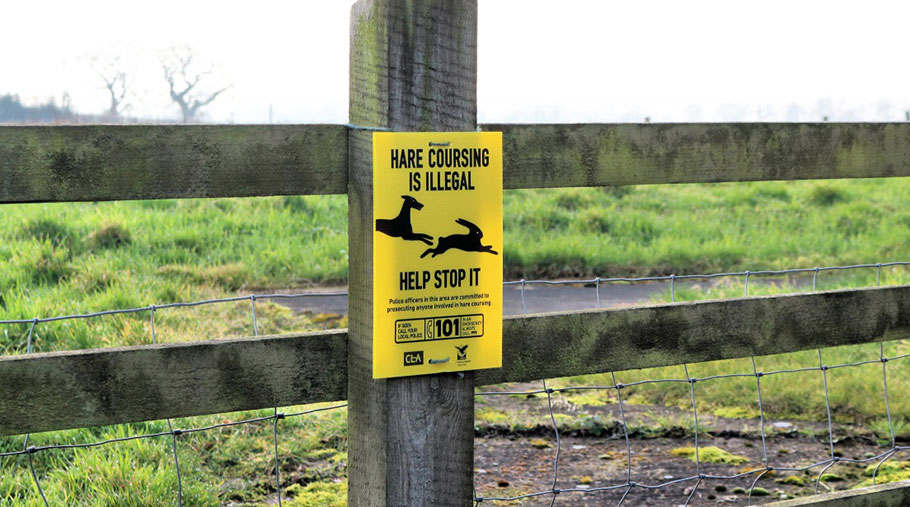Police must fight ‘sinister’ hare coursers to protect farmers
 © CLA
© CLA The police must prioritise tackling hare coursing and do everything possible to stop the “sinister tactics, threats and intimidation” from offenders, says the CLA.
In a letter sent to police chief constables and police and crime commissioners across the east of England, the CLA has urged officers to commit resources to combating the illegal sport and arrest those caught in the act.
Hare coursing involves dogs competing against each other in pursuit of a hare, with bets often placed on the outcome.
See also: Hare coursing: What you need to know if your farm is targeted
The 2004 Hunting Act outlawed hare coursing. It is illegal to participate, attend, knowingly facilitate or permit land to be used for a hare coursing event.
The “season” typically starts after harvest when large areas of arable land are cleared of crops, making it easier to travel across fields.
The crime can cause extensive criminal damage to land, crops and farm infrastructure, which costs rural businesses time, effort and money to resolve.
CLA East regional director Ben Underwood said: “It is a misconception for people to think this is a minor crime in the countryside.
“Those involved in hare coursing are hardened criminals – often using threats, intimidation and in some cases violence against anyone who questions or challenges their actions.”
As the recent National Rural Crime Survey shows, those who work or live in rural areas feel isolated and vulnerable to crime, he added, and hare coursers add to this feeling of unease.
Action plan
Prosecution powers do exist but the CLA is campaigning for stronger action to deter the criminals who take part, and has set out an action plan for farmers, landowners, the police and government.
- Introduce specific sentencing guidelines for hare coursing – tailored to have a maximum impact on hare coursers, such as vehicle seizures and ensuring compensation is paid to the landowner
- Providing resources for fighting hare coursing
- Allow police to reclaim kennelling costs of dogs from offenders
- Additional training for 101 call handlers so they better understand the crime
- Register convicted hare coursers and the dogs involved on the police national computer – those convicted multiple times should receive stronger punishments.
Working together
The CLA has offered members free signs that can be placed on land to warn hare coursers of the risk of prosecution if they take part in the illegal activity (see main image).
Advice for farmers:
- Any suspicious activity in the countryside should be reported to police on 101
- Call 999 if a crime is suspected to be taking place
- Criminals should not be tackled directly by the public
- Calls to the police to report incidents should be made from a discreet location.
Operation Galileo
Lincolnshire Police has announced that Operation Galileo has returned to combat hare coursing for another year.
In 2017-18 the force seized 76 dogs from criminals who were setting them loose to chase and kill hares.
Lincolnshire saw a 30% fall in incidents, from 1,965 in 2016-17 down to 1,365 in 2017-18.
This was down to working closer with rural communities and the use of new technology and tactics to prevent offending, including drones with thermal imaging capability.
To tackle rural crime this season, the force will use drones, quad bikes, Ford Kugas and Ford Rangers, which will have greater capacity to safely hold seized dogs and more power to tackle the most treacherous rural terrains.
Superintendent Phil Vickers, the force’s new lead for rural crime, said: “We are in good shape for this season with new vehicles and our drone can now be deployed 24/7 as more officers have been trained to fly them.
“Last season was very positive and we are looking at building on that while also improving our efforts to fight other rural crimes, such as thefts of machinery and dangerous driving.”
Supt Vickers urged farmers to report all information, even if it seems insignificant, as it may help piece together a crime and prevent others from becoming victims.
To report rural crime anonymously, call Crimestoppers on 0800 783 0137.
